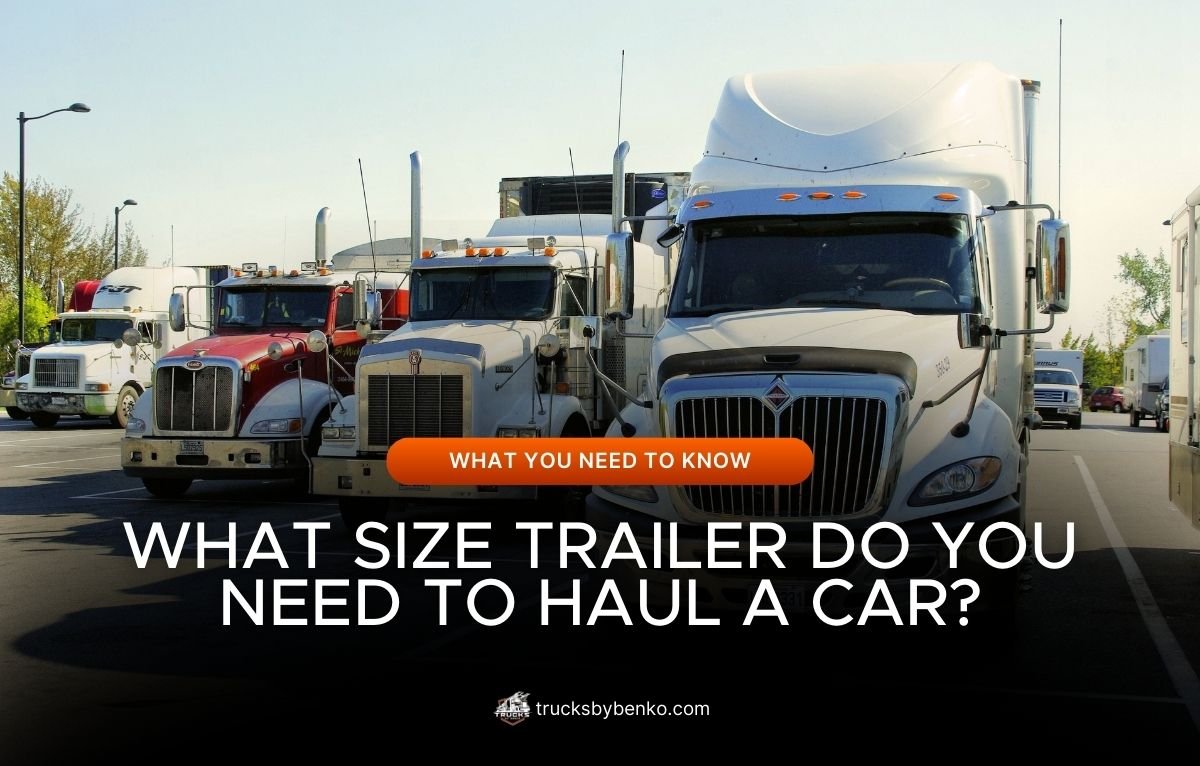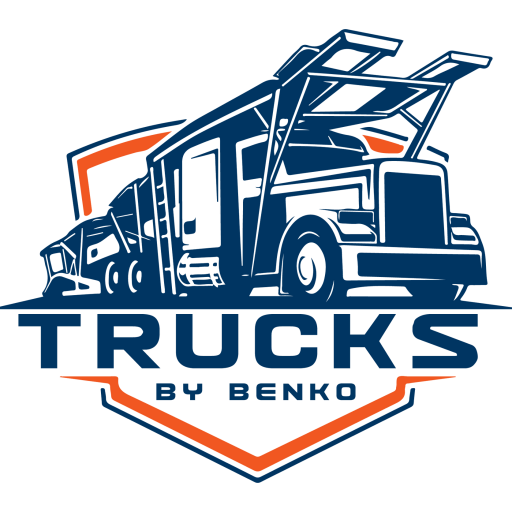What Kind of Trailer Do I Need to Haul a Car?
Highlights
- In the U.S., trailers over 3,000 pounds must have brakes, safety chains, and reflective lights to comply with federal regulations.
- In Canada, trailer requirements vary by province, including functioning brakes and winter-ready tires for safe towing.
- Sedans need a 7’ x 16’ trailer, compact cars fit on 7’ x 14’, and SUVs require an 8.5’ x 20’ trailer for safe transport.

Picking the right trailer size to haul a car is important for safety and convenience. Using the wrong trailer can damage your car or cause problems on the road.
Open trailers are popular because they are simple, affordable, and work well for most vehicles. To choose the right trailer, you must know your car’s size, weight, and the laws in your area.
In the U.S. and Canada, there are specific rules about trailers that you should follow.
This guide will help you determine what size trailer works best for your car while staying safe and legal.
Things to Think About Before Choosing a Trailer
Before you pick a trailer, check your car’s size and weight. The trailer must be big enough to fit the car, with some extra space for safety.
Make sure the trailer’s weight limit is higher than your car’s weight to avoid overloading. Your towing vehicle also needs to be strong enough to pull both the car and the trailer.
Lastly, look up local towing rules to ensure your setup is legal.
Best Trailer Sizes for Popular Cars
Different cars require different trailer sizes. The type of car you are hauling—whether it’s a compact car, sedan, SUV, truck, or sports car—will determine the best trailer size for the job.
Open trailers come in various dimensions to match these needs, making it easier to choose the right fit. Here are the ideal trailer sizes for five popular types of cars.
Sedans
Most sedans, like the Toyota Camry or Honda Accord, fit well on a 7’ x 16’ open trailer. This size gives enough room to load and secure the car. It’s also easy to tow, making it great for short and long trips.
Compact Cars
Compact cars such as the Honda Civic or Toyota Corolla usually need a 7’ x 14’ open trailer. These trailers are smaller and lighter, which is perfect for smaller vehicles. They are also more fuel-efficient for towing.
SUVs
SUVs, like the Toyota Highlander or Ford Explorer, require a larger trailer, usually 8.5’ x 20’. This size can handle the width and weight of bigger vehicles. It’s a safe choice for moving SUVs without overloading the trailer.
Trucks
For trucks like the Ford F-150 or Chevy Silverado, an 8.5’ x 22’ open trailer is a good option. It provides enough space and weight capacity for full-size trucks. These trailers are built to handle the extra load without straining your towing vehicle.
Luxury/Sports Cars
Luxury or sports cars, such as the Porsche 911 or Tesla Model 3, can be transported on an 8.5’ x 18’ or 8.5’ x 20’ open trailer. These trailers give enough room to secure high-value cars properly. Be sure to use extra tie-downs to protect the car during transport.
Legal Guidelines for Trailer Sizes and Weight
Every country has rules about trailer sizes and towing safety. In the U.S. and Canada, these laws vary depending on the type of trailer and the state or province. Knowing these rules will help you avoid fines and ensure smooth transport. Below are the main legal guidelines for trailers in both countries.
United States Guidelines
In the U.S., trailers over 3,000 pounds must have brakes on all axles, according to federal regulations. Most states also require trailers to have safety chains, reflective lights, and working brake lights. For more details, check your state’s towing laws.
Canada Guidelines
In Canada, trailer rules vary by province. Trailers must have functioning brakes and proper tires, especially in winter. You can find specific guidelines for each province on the Government of Canada’s road safety page. Following these rules will keep your towing legal and safe.
Tips for Safe Car Hauling
- When loading your car onto the trailer, make sure it is balanced and secure. Use strong straps and wheel chocks to keep it from moving. Properly distribute the weight to avoid swaying on the road.
- Inspect your trailer before every trip. Check that the hitch, brakes, and lights are in good condition. Fix any issues before you start driving.
- Drive carefully and stay under the speed limit when towing. Keep extra distance between your vehicle and others to allow for longer stopping times.
Choosing the Right Open Trailer
There are different types of open trailers to choose from. Pick the one that fits your car and towing needs best.
- Flatbed Trailers. These are versatile and can carry almost any type of car. They are easy to load and cost-effective.
- Tilt Deck Trailers. These have a tilting mechanism that makes loading easier, especially for cars with low ground clearance.
- Utility Trailers with Rails. These come with side rails for extra support and safety during transport.
Cost and Budget Tips
Open trailers are usually cheaper than enclosed ones. Buying an open trailer can cost between $2,000 and $6,000, depending on the size. Renting is another option, with prices ranging from $50 to $100 per day.
Maintenance is important and adds to the overall cost. Regularly check your trailer’s tires, brakes, and lights to keep it in good shape.
Towing a trailer also increases fuel usage, so plan for higher fuel costs. Budgeting for these expenses will help you avoid surprises.
Conclusion
Choosing the right open trailer size for hauling a car is important for safety and legal reasons.
From compact cars to trucks, there’s an open trailer size that fits every vehicle. Always consider your car’s size, weight, and the towing rules in your area.
By following these tips and checking local laws, you can transport your car safely and efficiently.
Ready to start towing? Research trailer options and consult professionals to find the best fit for your car.
